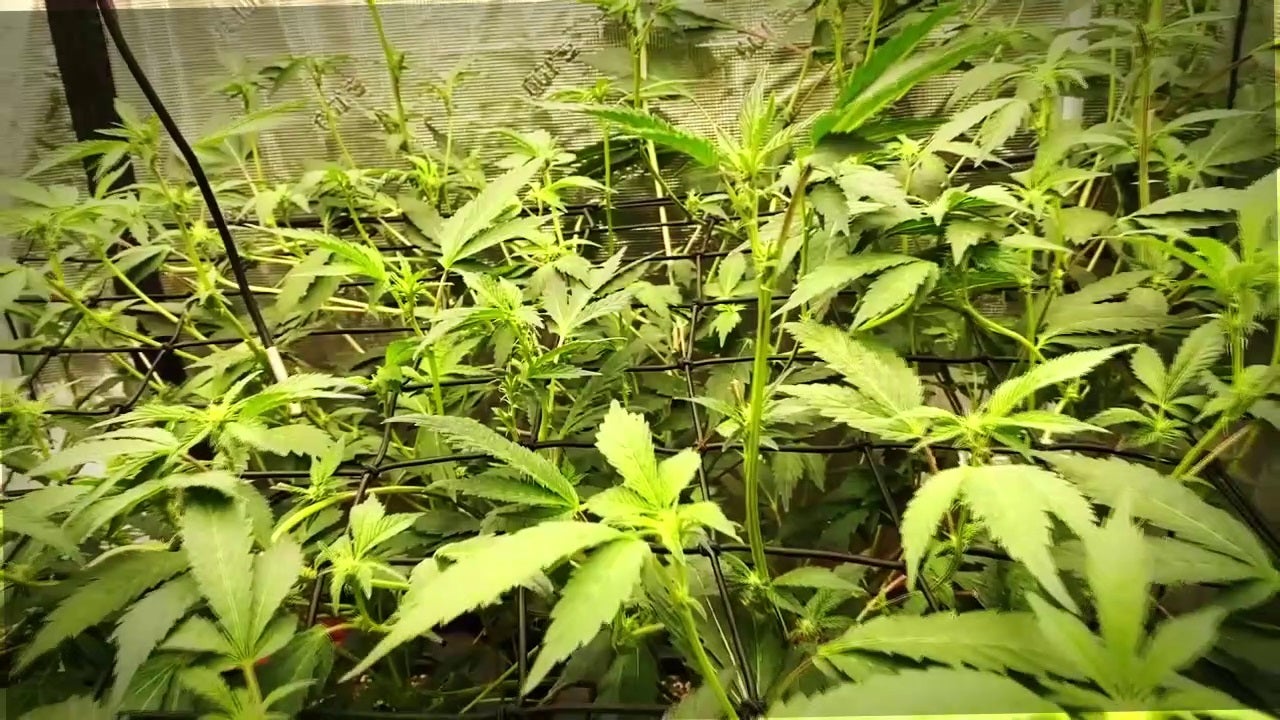- Baked In
- Posts
- 🌿 Vets Are On The Brink Of Cannabis Access
🌿 Vets Are On The Brink Of Cannabis Access
GM Everyone,
Cole is on the calendar.
Brick by brick.
💸 The Tape
In yet another episode of “The Federal Government Can’t Agree With Itself,” the U.S. Department of Agriculture (USDA) appears to have gone rogue—or maybe just honest—by labeling Cannabis sativa as “medicinal” in its own phytochemical database. That’s right: the same plant that the federal government insists has no accepted medical use is being described by one of its own agencies as, well, medicine.
The listing lives in the USDA’s Dr. Duke’s Phytochemical and Ethnobotanical Databases, a well-respected guide to the medicinal and cultural uses of plants. It’s a quiet contradiction to marijuana’s current Schedule I status under the Controlled Substances Act (CSA), where it sits alongside heroin, far away from aspirin and insulin.
Meanwhile, over at the Drug Enforcement Administration (DEA), the long-promised rescheduling review is still lost in bureaucratic limbo. Six months after a judge hit pause on hearings amid accusations of DEA collusion with anti-cannabis witnesses, the agency still hasn’t managed to find a green light—or a clue.
The feds are in full “hurry up and wait” mode. President Trump’s pick for DEA administrator, Terrance Cole, has vaguely promised to make cannabis rescheduling a “priority,” while his predecessor was firmly rooted in the “gateway drug” era. But with Acting Administrator Robert Murphy now in charge, there’s no clear timeline—or enthusiasm.
Meanwhile, advocates like NORML’s Paul Armentano and SSDP’s Kat Murti are increasingly exasperated. “It is growing impossible for federal agencies to deny the reality that cannabis is medicine,” said Armentano. Murti was more blunt: “It’s a legal farce.”
As if to further underline the irony, the Department of Health and Human Services (HHS) already concluded in 2023 that cannabis does have accepted medical use. Even NIDA, the government’s top drug research body, concedes cannabis helps with pain and may have “additional therapeutic uses.”
Still, the DEA seems locked in a political haze, resistant to movement. Congress, of course, could resolve this circus with legislation—but don’t hold your breath. Until then, it’s a battle of one federal agency’s common sense versus another’s bureaucratic purgatory.
As for the USDA? Let’s just say it quietly passed the joint—while the DEA’s still stuck holding the bag.
📈 Dog Walkers
$AAWH ( ▼ 6.08% ) Ascend Updates eCommerce Assets
What’s Going On Here: Ascend Wellness (CSE: AAWH.U | OTCQX: AAWH) just dropped its biggest digital upgrade yet — a sleek new eCommerce platform and a turbocharged loyalty experience called the Ascenders Club, designed to push cannabis retail into the next era of convenience, personalization, and customer value.
🎯 What’s New:
All-New Website & App: Featuring lightning-fast AI-powered shopping and personalized product discovery.
Ascend Pay: A secure, cashless checkout experience baked right into the app — no wallet, no waiting, just order and go.
Loyalty, Leveled Up: Four tiers — Blue, Gold, Platinum, and Legends Club — with increasingly elite perks like birthday gifts, launch exclusives, and early drop access.
🛍️ With Dutchie powering the back-end and a mobile-first design, customers can browse, track points, and pay in a few taps. Ascend CEO Sam Brill calls it a “complete transformation of our customer experience,” aiming to cement AWH’s position as a digital leader in cannabis retail.
Existing customers were auto-enrolled into loyalty tiers on July 15, while new users can sign up via web, in-store, or the freshly-launched Ascend Dispensary App.
Ron DeSantis Needs To Grow Up
What’s Going On Here: Florida Gov. Ron DeSantis just made it crystal clear: support cannabis reform and you’re off the shortlist—at least if you're Joe Gruters. In naming state Sen. Blaise Ingoglia (R) as Florida’s interim Chief Financial Officer, DeSantis publicly rejected Gruters for his past backing of Amendment 3, last year’s failed adult-use cannabis ballot measure, accusing him of siding with Trulieve and “liberal Democrats.”
DeSantis, still licking his wounds from a campaign that saw Trump back Gruters, said even a resurrected George Washington couldn’t convince him to appoint the senator. His cannabis concerns came bundled with critiques of Gruters on immigration, gun rights, and “gender ideology.”
Meanwhile, Amendment 3—though majority-backed—fell short of Florida’s steep 60% threshold, despite Trump’s lukewarm endorsement. DeSantis’s anti-weed crusade, allegedly propped up by state-funded ad campaigns, appears to be shaping both policy and personnel decisions.
And now, with Ingoglia in office and new restrictions on citizen ballot initiatives being floated, DeSantis’s message is loud and clear: in Florida, weed reform comes at a political cost.
🗞️ The News
📺 YouTube
How Cannabis Markets Are Shifting & What’s Next Post-Reform | Trade to Black
What we will cover:
✅ Cannabis lending remains cautious, but important shifts are starting to take shape—especially as reform discussions gain momentum.
In this episode of Trade To Black, we sit down with Peter Sack, Managing Partner at Chicago Atlantic (NASDAQ: REFI), to discuss how lenders are approaching the industry today and what could change if reform or rescheduling moves forward.
Here’s what we cover: • $462 million in cannabis lending pipelines—how maturities, refinancing, and distressed assets are being managed. • The Glass House federal raid—why no cannabis product was seized and why that’s a subtle but positive indicator of progress. • Texas, Georgia, and Sun Belt markets—how lenders weigh early-stage medical markets and when capital typically enters. • Rescheduling & reform impact—what might shift in risk thresholds, cash flow profiles, and access to institutional capital. • 280E taxes & ESOPs—why tax policy remains a major barrier to M&A and how ESOP conversions are shaping private operators. • Hemp-derived THC beverages—are they expanding the market, and when might debt capital follow?


